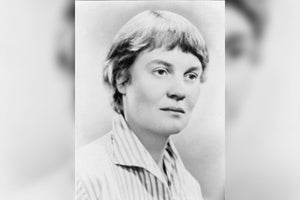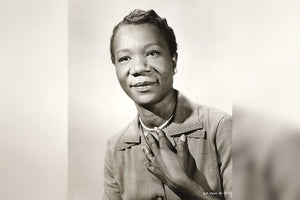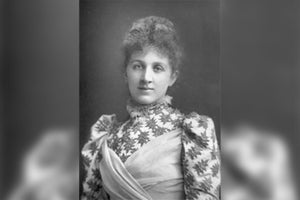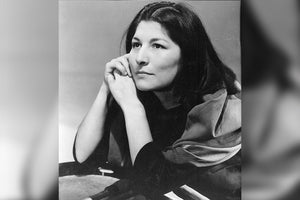Birthday: March 5, 1938
Who is Lynn Margulis?
Born Lynn Petra Alexander, Lynn Margulis is a renowned American evolutionary biologist, theorist, science author, popularizer, and professor of geosciences for the University of Massachusetts. She is also known for her symbiogenesis theory. She made a name in the field of science and had multiple great contributions to the community.
Five Facts About Lynn Margulis
- Hailed as the Unruly Mother of Science
- Criticized neo-Darwinism and challenged it with her theory on Symbiogenesis
- Her paper entitled ‘On the Origin of Mitosing Cells’ was rejected 15 times
- One of the 50 most important women of Science according to Discover
- Developed the Gaia Theory together with James Lovelock
Inspirational Quotes from Lynn Margulis
“Life did not take over the world by combat, but by networking”
“Life on Earth is more like a verb. It repairs, maintains, recreates, and outdoes itself”
Lynn Margulis Biography
Personal Life
Lynn Margulis, whose name is synonymous with symbiosis according to historian Jan Sapp, was born on the 5th of March, 1938 in Chicago, Illinois. She was a gifted child born in a Jewish family, and at the age of 15, she was accepted at the University of Chicago Laboratory Schools and at the age of 19 received a BA in Liberal Arts at the University of Chicago.
She studied biology at the University of Wisconsin under the supervision of Walter Plaut and Hans Ris. Her excellence earned her an offer as a research associate and a lectureship at Brandeis University before she could even finish her dissertation. In 1966 she taught biology for a decade and two years and had a series of promotions until she became a distinguished professor in various fields of science such as Botany, Geosciences, and Biology.
In 1957, Margulis was married to Carl Sagan, an astronomer, and had two kids who all made names in the field of science. Their marriage, however, ended in 1964. She remarried in 1967 to Thomas N. Margulis, a crystallographer, had a son and a daughter but then soon divorced in the 1980s.
According to Margulis, it was humanely impossible to become a great wife, mother, and scientist all at once, thus she had to sacrifice one aspect, and it was to be a wife. Despite being born into a Jewish family, Margulis was agnostic and constantly criticized neo-Darwinism.
Contributions
Margulis’ paper entitled ‘On the Origin of Mitosing Cells’, after being rejected 15 times by different scientific journals, was finally given recognition by the Journal of Theoretical Biology in 1966 after Margulis’ persistence.
Soon enough, Robert Schwartz and Margaret Dayhoff created the first-ever experimental proof for Margulis’ symbiogenesis theory by demonstrating how the mitochondria were derived from bacteria while chloroplasts came from cyanobacteria. Her Endosymbiosis theory on Organogenesis finally earned the honor and recognition it deserved in 1988.
Margulis and Lovelock often worked together and sought each other’s inputs on their research, and this was how they started to collaborate on the Gaia Hypothesis which Lovelock had explained to Margulis. The two then published a cooperative paper in 1974 about the topic, and in Margulis’ book entitled ‘Symbiotic Planet’ published in 1988, she discussed the relationship between symbiosis and the Gaia hypothesis.
Margulis was also the promulgator and mainly defended Robert Whittaker’s Five Kingdom Classification.
Honors and Awards
Because of her devotion to the field of science, Margulis was a recipient of various honors and awards from her contributions, criticisms, and scientific presentations that according to many, only she could ever think of.
Here is a list of some of the prestigious awards she gained over the years:
- 1986: Miescher-Ishida Prize
- 1992: Chancellor’s Medal for Distinguished Faculty of University of Massachusetts
- 1998: the American Institute of Biological Sciences’ Distinguished Service Award
- 1999: William Procter Prize (Scientific Achievement)
- 1999: National Medal of Science
- 2001: Golden Plate Award
- 2002 to 2005: Alexander von Humboldt Prize
- 2008: Darwin Wallace Medal
Legacy and Death
In 1983, Margulis earned the National Medal of Science after being elected by the National Academy of Sciences. She was also a member of the following organizations: World Academy of Art and Science, American Academy of Arts and Sciences, Russian Academy of Natural Sciences, and Massachusetts Academy of Sciences.
She also co-founded two societies internationally – the Symbiosis and Evolutionary Protistology – and was of service to certain committees such as NASA, AAA, National Academy of Sciences, and National Science Resource Center.
Margulis was infamous for being a scientific rebel who often criticized theories of all kinds. She was also one of the biggest challengers of neo-Darwinism and had lifelong debates with neo-Darwinist biologists like George C. Williams, Richard Dawkins, and John Maynard Smith. Many of Margulis’s works were written in collaboration with her son Dorion Sagan.
Margulis died at the age of 73 on November 22, 2011 by a hemorrhagic stroke, and like how she asked, she was cremated and scattered over her favorite research spots around her home.
![]() Fast Shipping
Fast Shipping![]() Subscribe to our Newsletter
Subscribe to our Newsletter![]() 🌟 New Global Competition 🌟
🌟 New Global Competition 🌟















